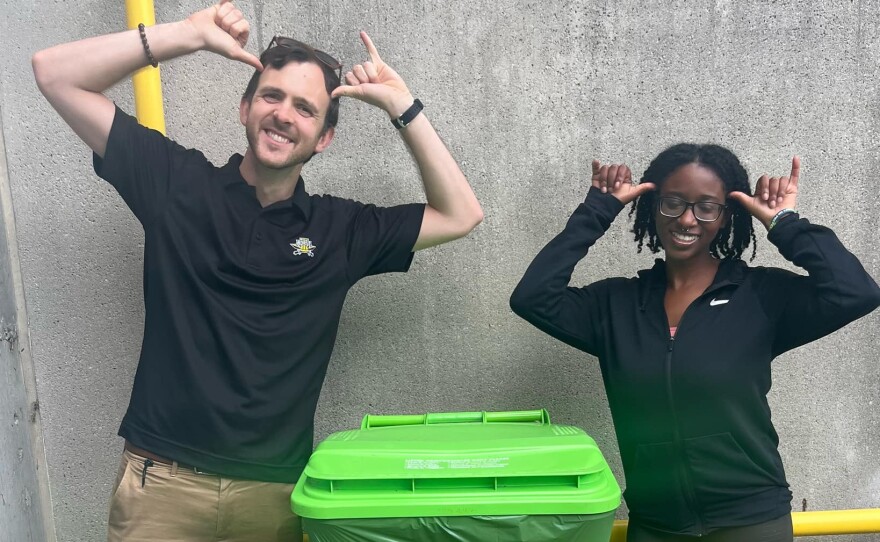Northern Kentucky University started a composting program last year, and have diverted more than 3,200 pounds of inedible food away from landfills. Sustainability Operations Coordinator Tiffany Budd says NKU's food pantry program, FUEL, sends what they can't use to be composted.
"Some of the items that are donated are food items that maybe have been sitting out. They can be already a week or two old by the time they get donated, so they might be moldy," Budd says. "They actually have a decent amount of food waste. It's unfortunate that that's the case, but at least now we're able to divert it from the landfill, and turn it back into soil so it gets to be reused."
Budd says food waste contributes to the amount of methane in the atmosphere.
"Composting, even though it seems like such a small thing, overall it actually is a pretty significant contributor to helping mitigate climate change and to greenhouse gases," she says. "When it is composted, all of that carbon is being sequestered and put back into the soil."
She says other universities across the country have also started composting programs, and some are campus-wide. She says she'd also like to expand NKU's program.
"Incorporating composting across the entire university would be much more challenging," she says. "You have to change out a lot of your materials in your dining services to compostable items instead of plastic, because you can't mix the two in."
LISTEN: How to attract and nourish birds in your yard
Budd says a lot of students had asked about starting composting on campus.
NKU's sustainability efforts include community gardens, recycling, and installing 15 electric vehicle charging stations.



